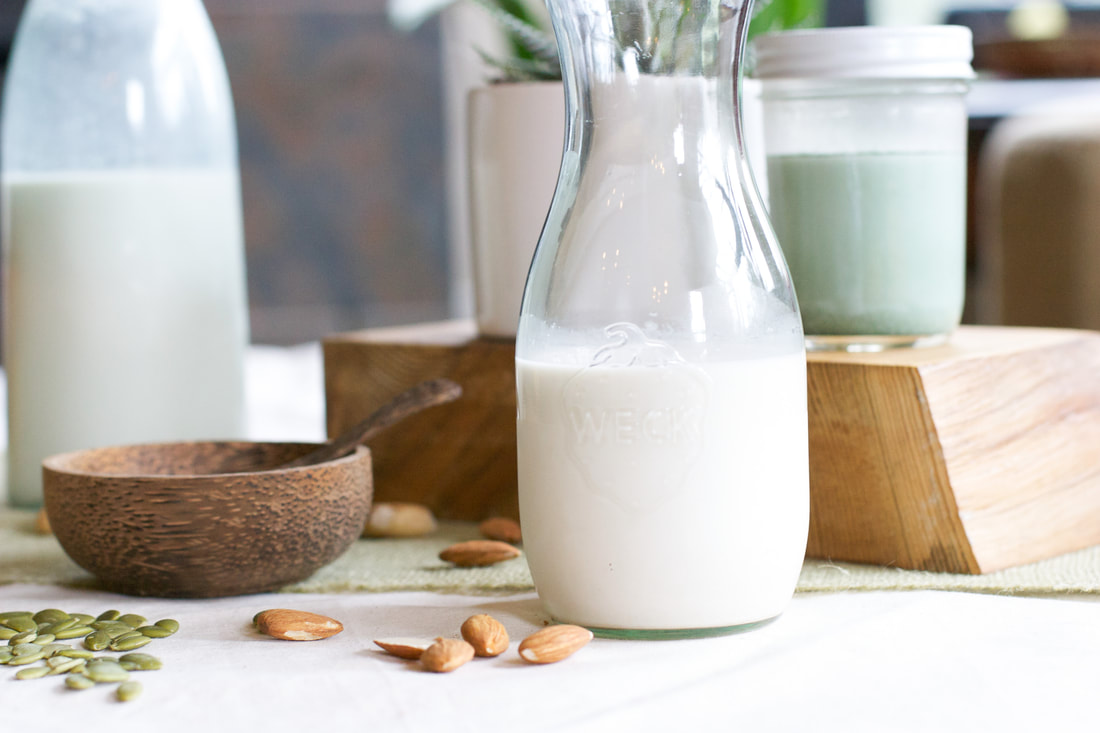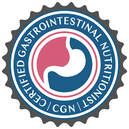|
When you look at the dairy shelves today there are many vegan options available. Usually, they are made from a nut or seed base. Lately, oat milk has been getting a lot of marketing press. But do these products really make the cut nutritionally speaking?? That is a great question! Making a smart choice can be really difficult if you do not know what to look for.
Although plant based non-dairy products can be a helpful alternative if someone struggles with a lactose or milk protein intolerance, they are often not as nutrient dense as you may think they are. Plant based yogurts and milks are commonly low in protein and calcium and high in added sugars, thickeners, and gums. You have to be very careful when selecting a product to make sure you are not missing out on certain nutrients that you would otherwise get from dairy milk products. PROTEIN CONTENT vs SUGAR CONTENT When comparing protein content most plant based milks and yogurts contain very little, usually about 1-3g per serving (unless it’s soy milk). On the other hand, 1 cup of regular milk or yogurt contains 8g of protein, while the Greek yogurt varieties contain up to 25g per cup! That is very significant when compared to their plant based counter parts. Unfortunately, both the plant and dairy based products are often sweetened with added sugars to increase palatability. This is more often true with plant based products because milk is naturally sweet from lactose. Even plain varieties of plant based yogurts often contain added sugar. If you combine this with their low protein content it is a recipe for increased blood sugar spikes and increased hunger shortly after consumption. Dietitian Tip: Choose a plant based product that contains more protein and less added sugar to help maintain satiety for a longer period of time and reduce blood sugar spikes. Plus, instead of adding more honey or maple syrup to plain yogurts or milks, pair them with fresh berries for a little high fiber sweetness and add a handful of nuts (or tablespoon nut butter) to increase the protein, fat, and fiber for more blood sugar support and increased satiety. Plant Based Yogurts with HIGH protein and LOW Sugar:
Plant Based Milks with HIGH Protein and LOW Sugar:
PROBIOTIC POTENTIAL As with dairy products the probiotic action of most plant based yogurts is very minimal. By the time yogurts reach your plate the number of live cultures is limited. Tanginess or tingling is often the characteristic of live, active fermentation which indicates higher probiotic potential. If you make your own 24 hour yogurt at home, whether dairy or plant-based, it will yield a much higher probiotic count than store bought. Dietitian Tip: GT’s CocoYo provides a live probiotic punch. Be aware it is VERY tangy and tingly which is not everyone’s cup of tea. Lavva Yogurts also promote that they have 50 billion units per cup, but what strains is not indicated. Nancy’s Oatmilk yogurts is another great option because it contains researched probiotic strains that have been shown to provide health benefits. MICRONUTRIENTS OF CONCERN Finally, if one must replace dairy products with their plant based alternatives due to intolerance or personal preference, one must consider what nutrients are being missed. Those of biggest concern are calcium, vitamin D, and iodine. Calcium: With an average daily recommended intake of 1000-1200mg, calcium is one of the biggest concerns. As many people know, calcium is essential for bone health. It also plays a role in cell signaling including regulating blood pressure, insulin secretion, nerve impulse transmission, and muscle contraction to name a few. Some plant milks and yogurts are fortified with calcium. However, if you are not careful, you can easily select one that is not fortified or contains very little thereby increasing your risk of calcium deficiency. For example, 1 cup of dairy milk or yogurt contains between 300-400mg of calcium. If you replace your 1-2 cups of dairy milk or yogurt with a non-fortified plant based product you are missing out on a lot of your daily needs! Dietitian Tip: Choose a plant based milk or yogurt that contains at least 20-25% of your daily value of calcium. Make sure to shake the milk container well prior to each use because the added calcium carbonate can settle at the bottom. Vitamin D: Vitamin D plays an important role in calcium absorption. Without adequate vitamin D individuals will not be able to obtain as much calcium from their diet. Since dairy is often fortified with vitamin D, it can be easy to lose out on this source of vitamin D if you switch to a plant based alternative. Unfortunately, in the Pacific Northwest you can only rely on the sun to provide vitamin D during the months of May through September. Dietitian Tip: Choose a plant based milk that is fortified with vitamin D and/or make sure your daily multivitamin provides 800IU of vitamin D3. Iodine: Finally, iodine is an essential nutrient for proper thyroid function and therefore directly effects metabolism. Dairy products are a main source of iodine in the American diet. Plant based milks and yogurts do not contain iodine. Keeping this in mind it is very important to replace iodine from other food sources including fish, seaweed, or iodized salt. Dietitian Tip: Sea Seasonings Dulse Granules or Eden’s Gomasio are fun ways to add a great source of iodine to your diet. If you don't like the flavor of seaweed, simply use iodized salt in cooking. CONCLUSION It is really hard to find a non-dairy milk or yogurt that has it all; protein, low sugar content, and 20% or more of your calcium or vitamin D, and not to mention a flavor profile that you like. Even the new oat milk craze doesn’t match up with only 3g of protein per cup. The items below are close to meeting most specifications, but are not perfect. Therefore, it is important to be aware of what you are getting out of your non-dairy product. Is it protein, micronutrients, or live probiotics? Or is it simply because it tastes delicious? Just make sure to be smart to avoid missing out critical nutrients in the long run. Best All Around Choices:
Dietitian Tip: If you have a favorite brand of non-dairy milk or yogurt and it is low in calcium consider stirring in 1/8th or ¼ teaspoon of KAL Bone Meal Powder per serving to increase the calcium content.
1 Comment
8/27/2019 01:09:44 am
The more you know, the longer you live. If you want to live a long life, then you need to be more aware of what you need to know. Of course, there is an unlimited amount of knowledge in the world, but that is what I am saying. If you know a lot, then chances are that you know how to do other things. You can live a long life if you just educate yourself, trust me, that is the truth.
Reply
Leave a Reply. |
AuthorLike to read? Then get your evidence based nutrition information here! All posts written by Selva Wohlgemuth, MS, RDN Functional Nutritionist & Clinical Dietitian Archives
August 2023
Categories
All
|

 RSS Feed
RSS Feed


